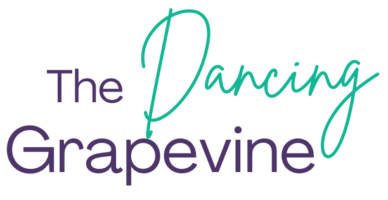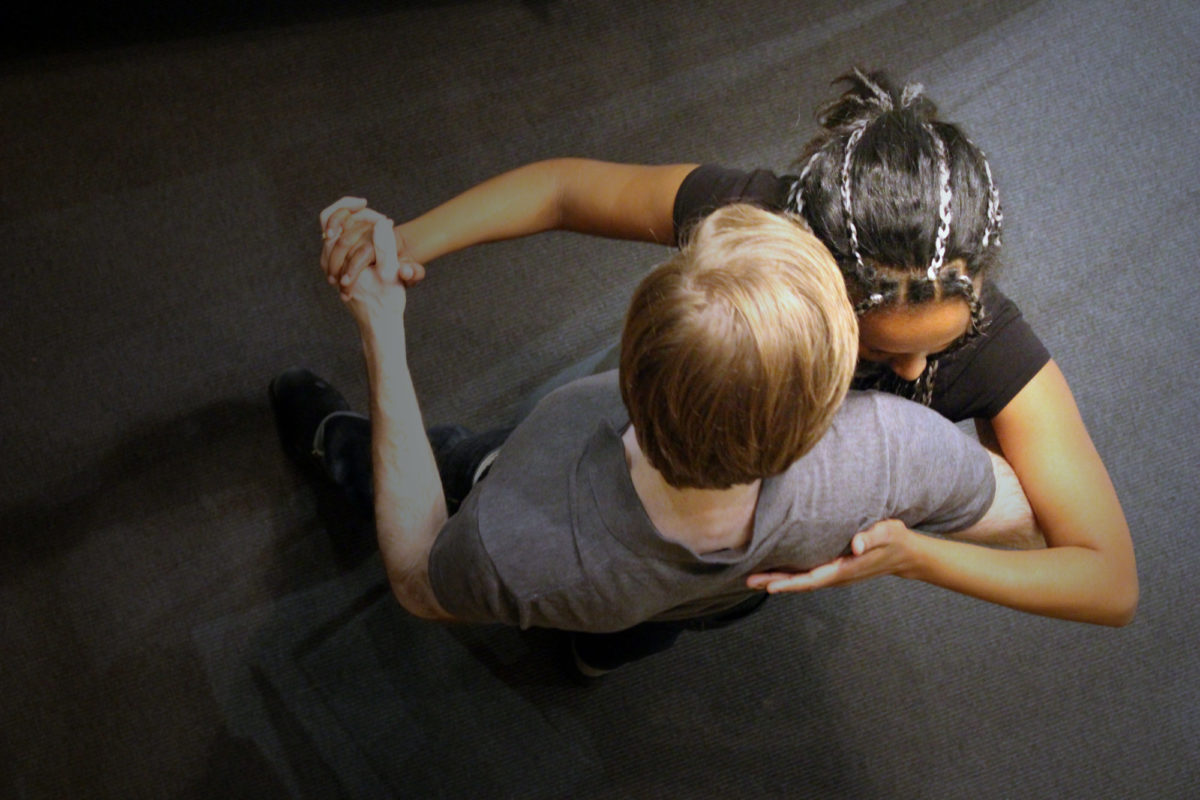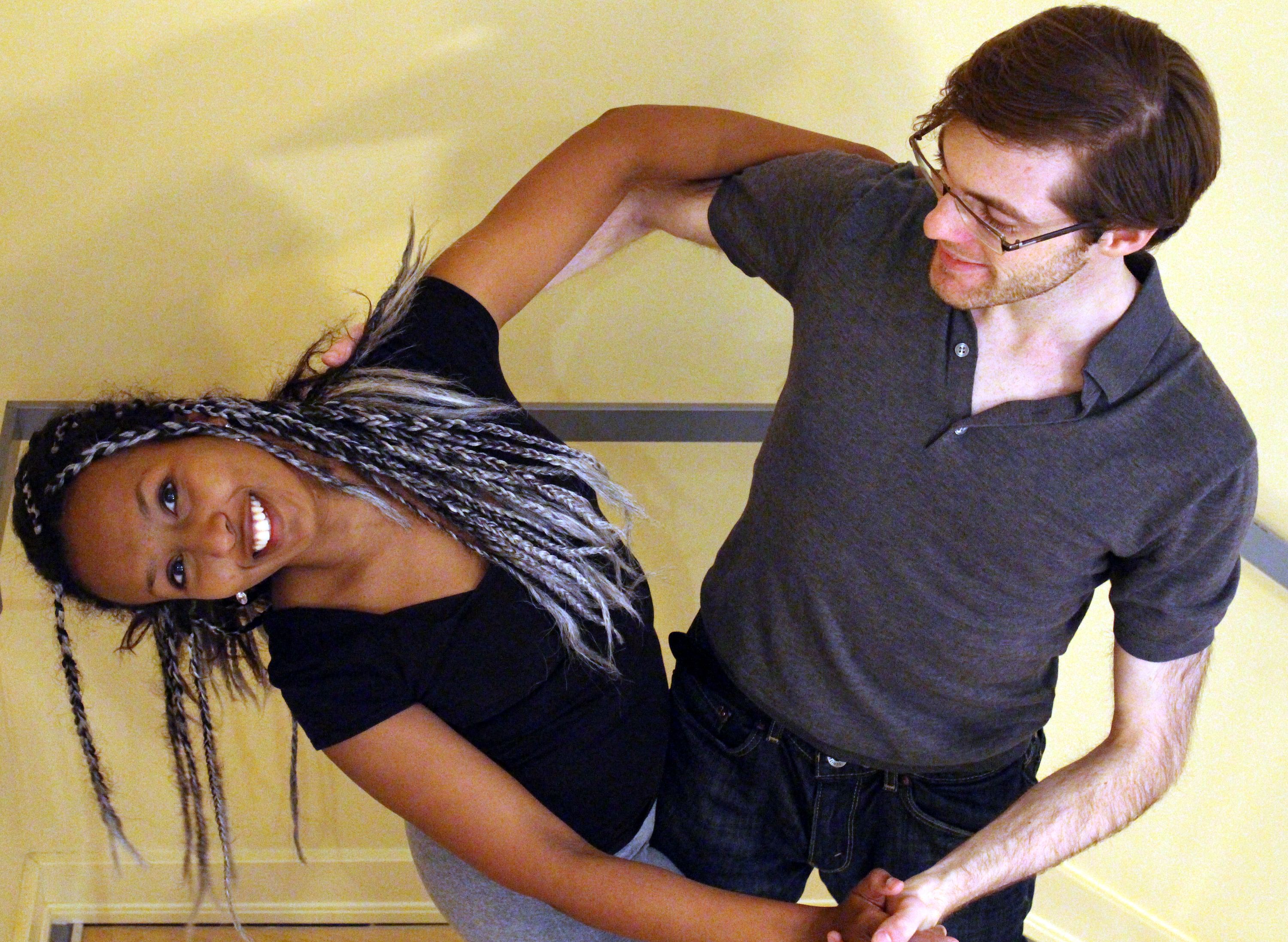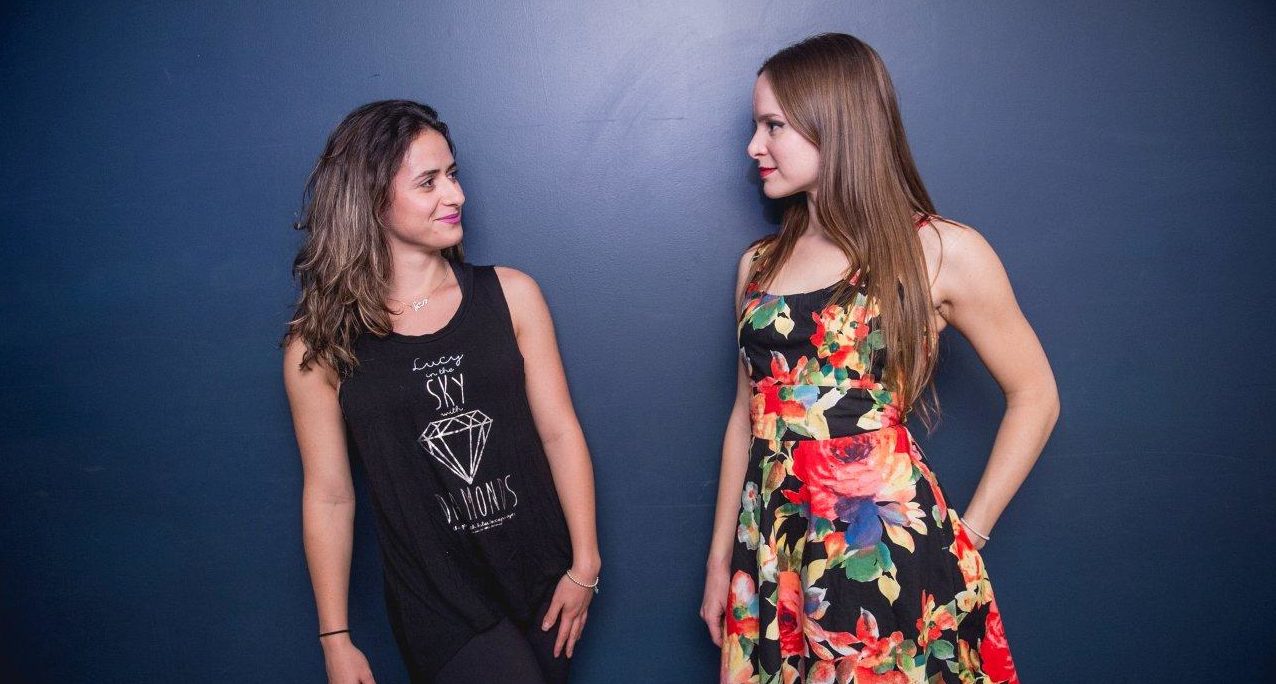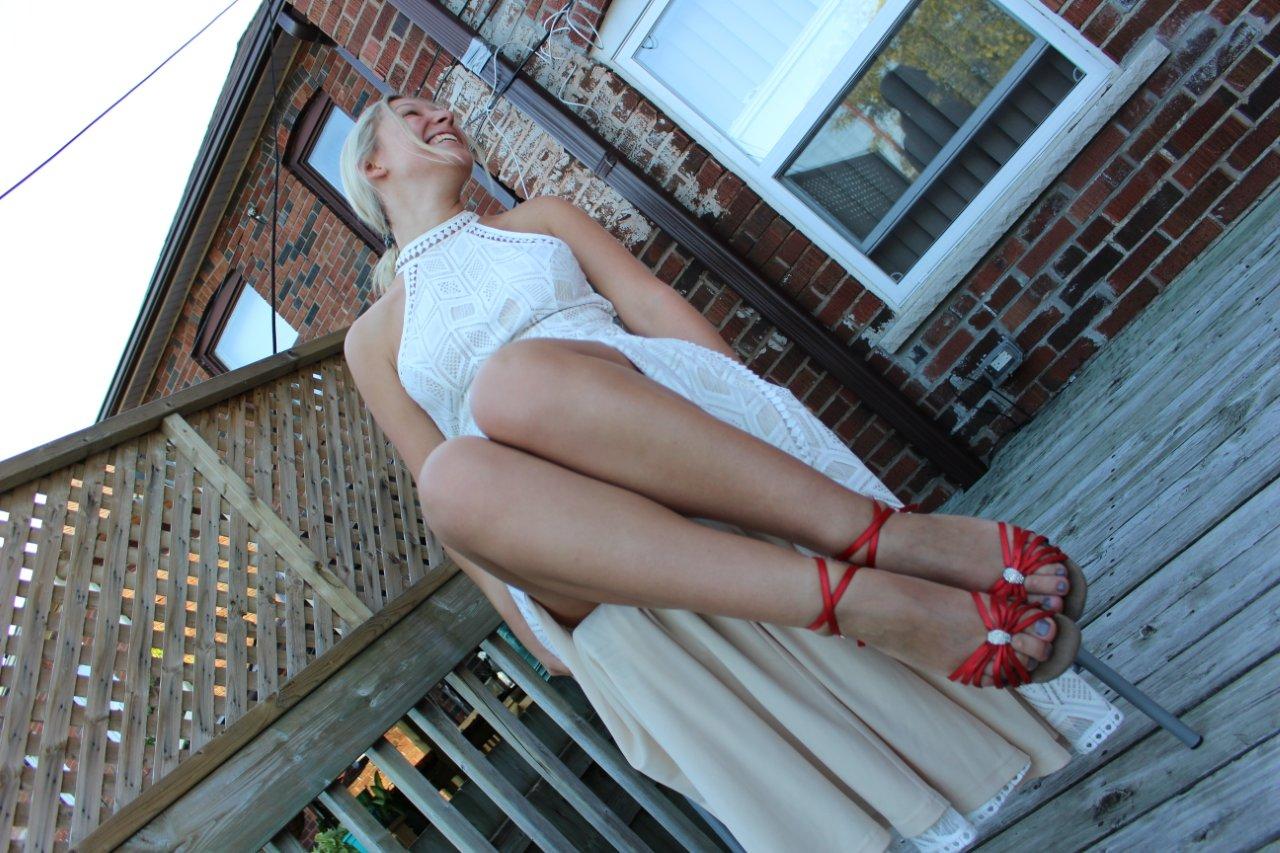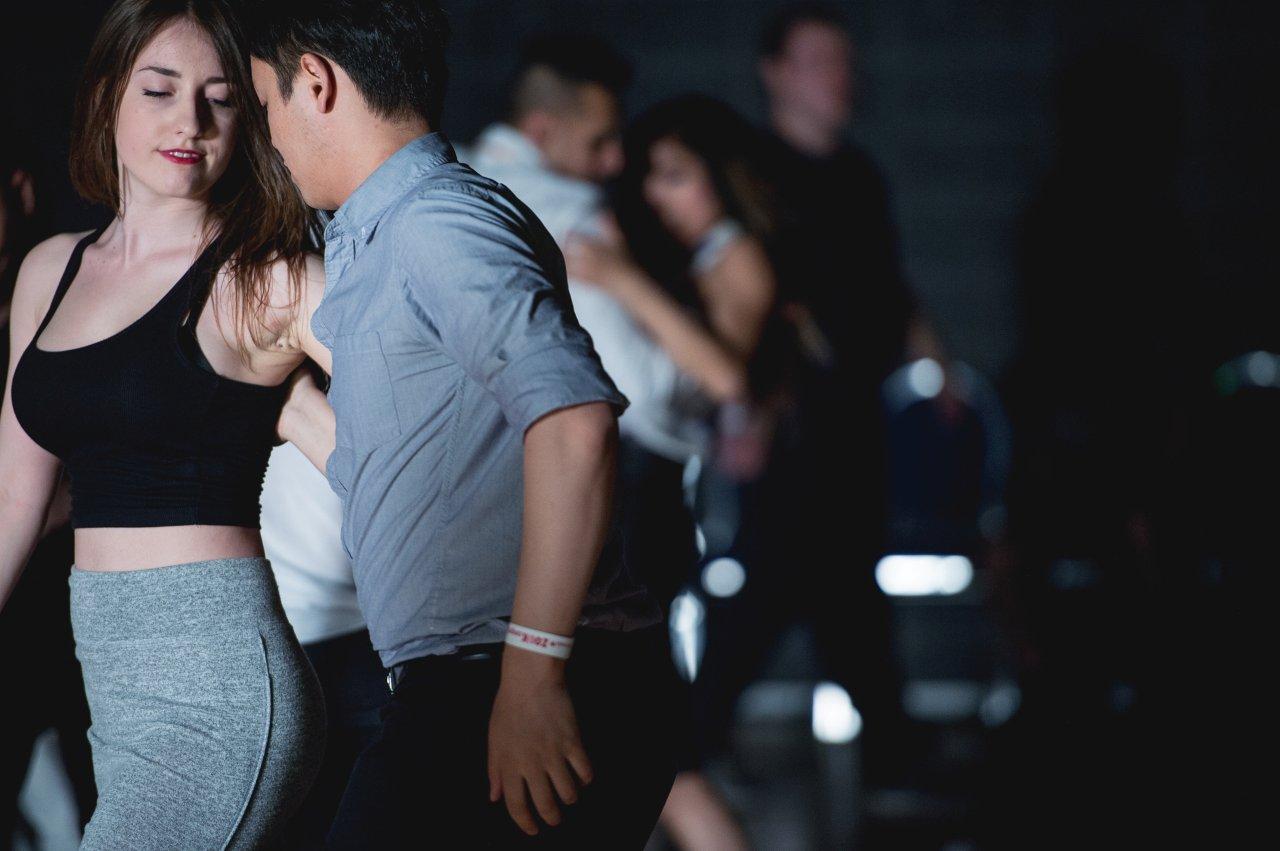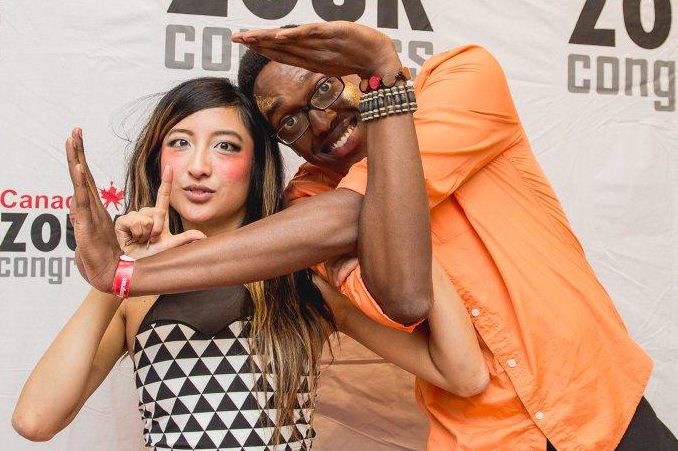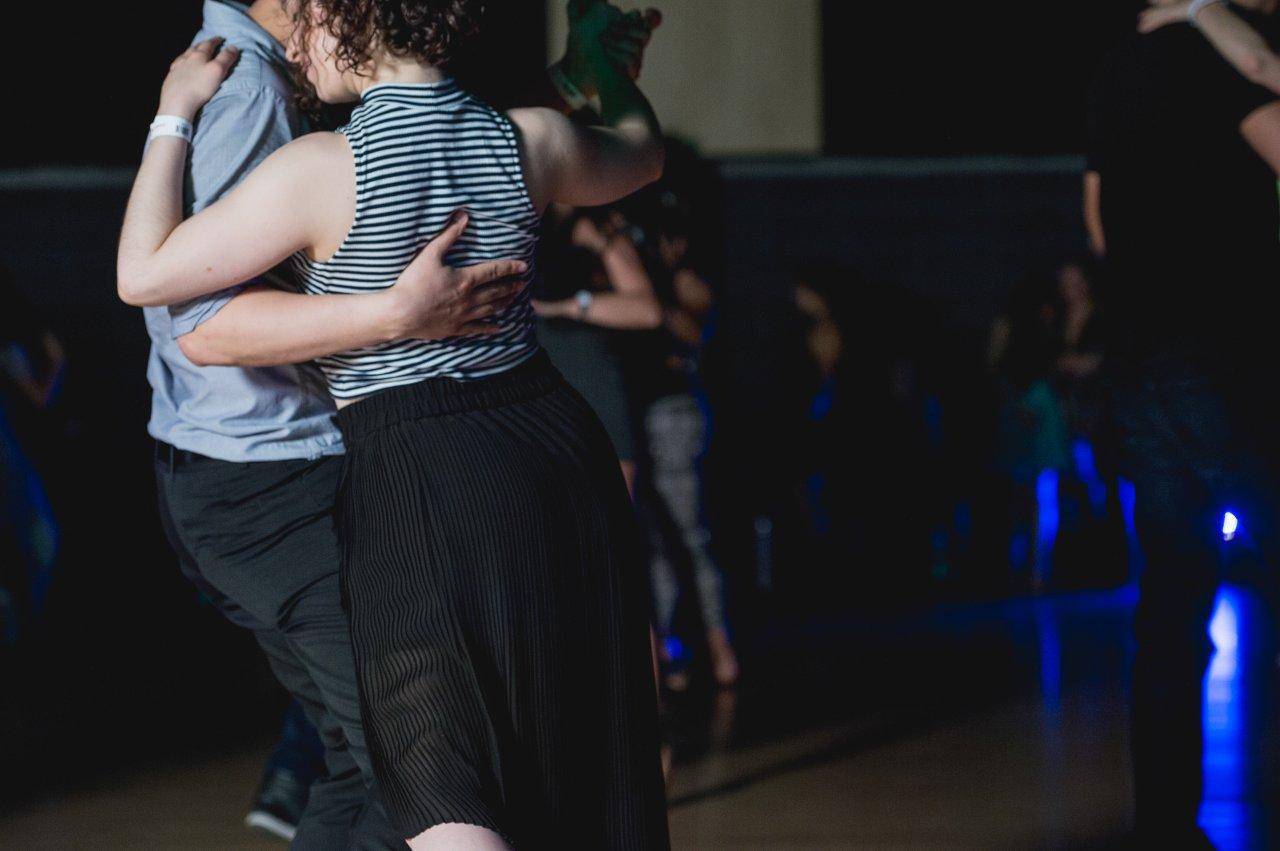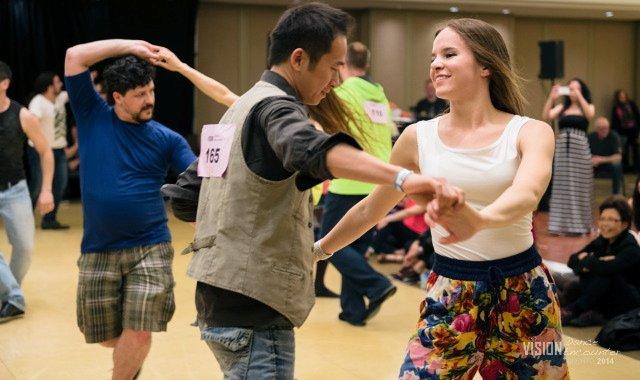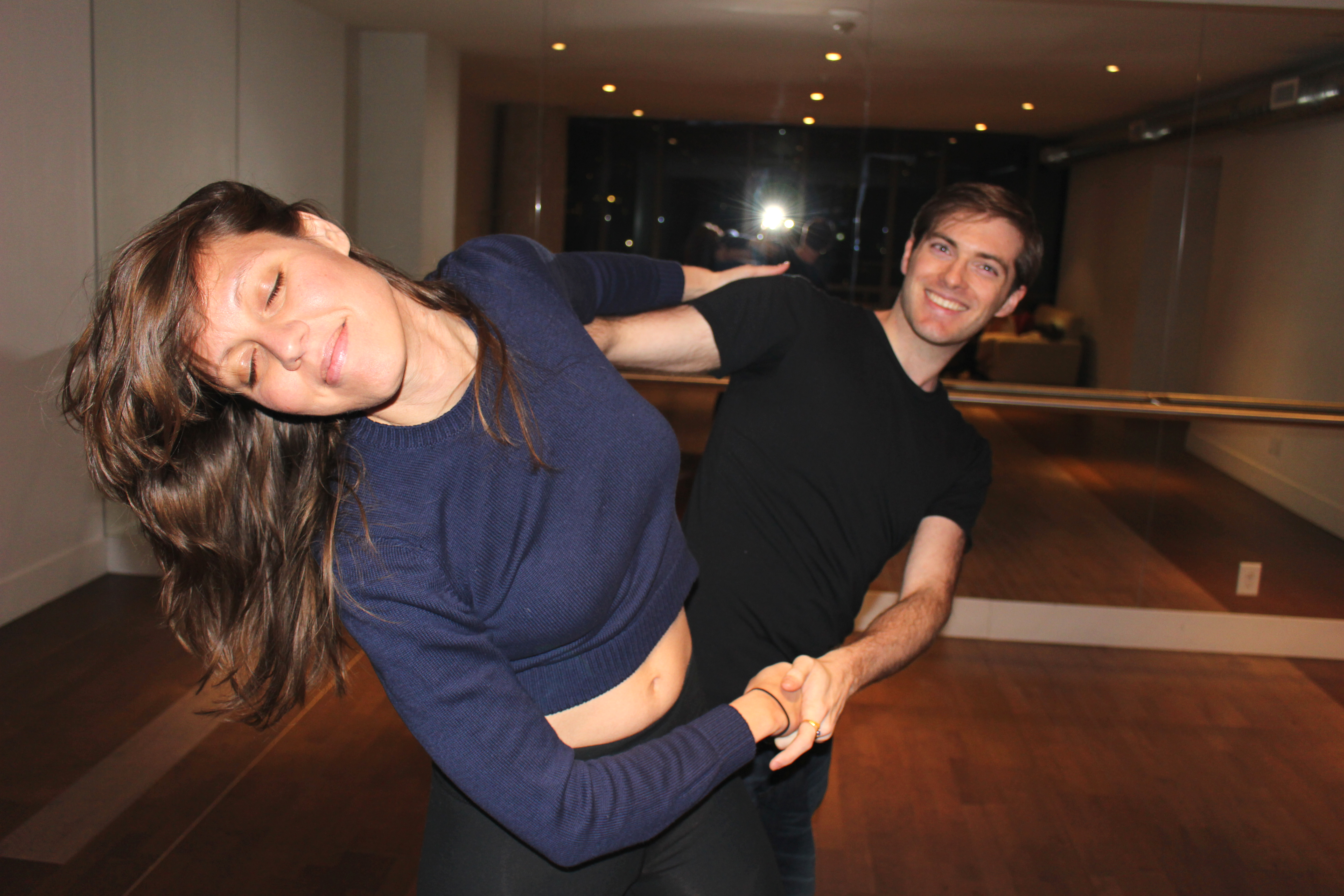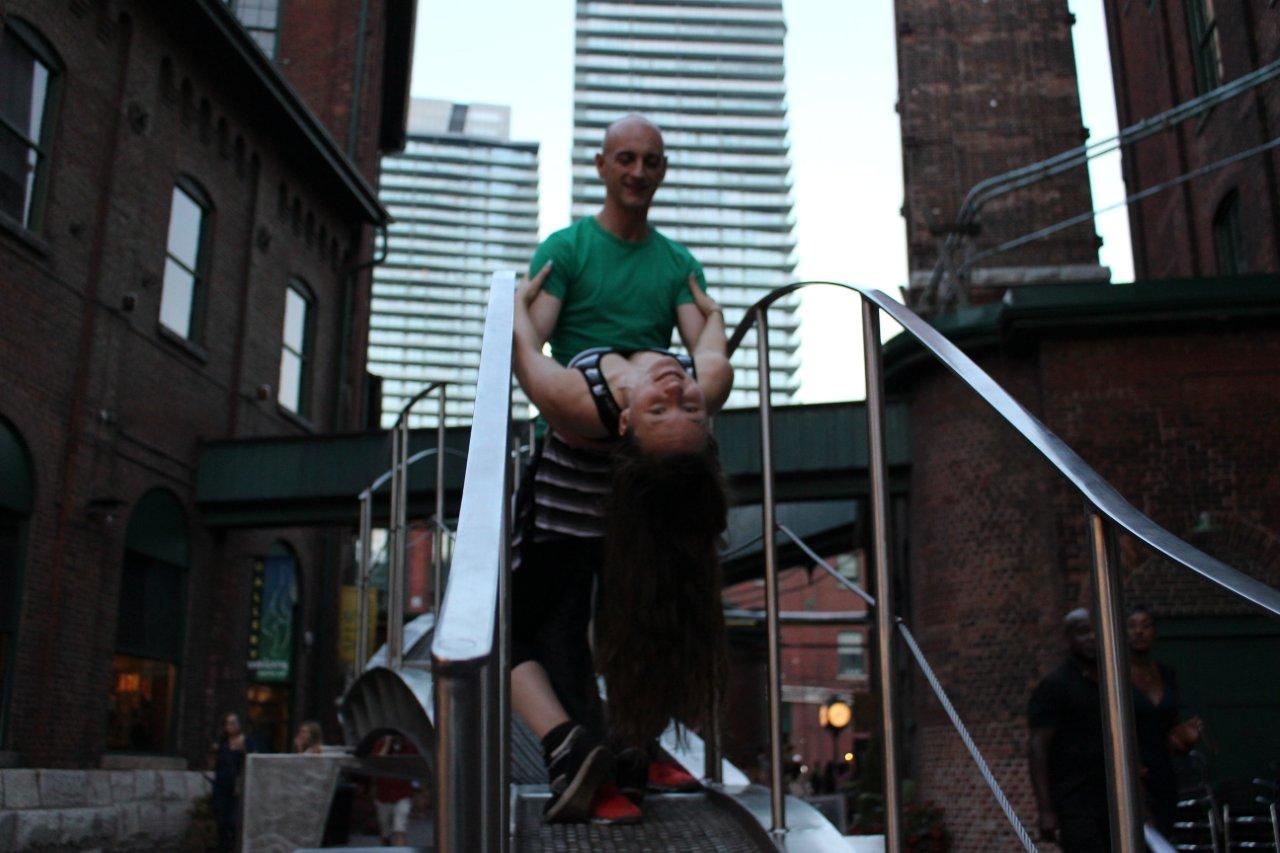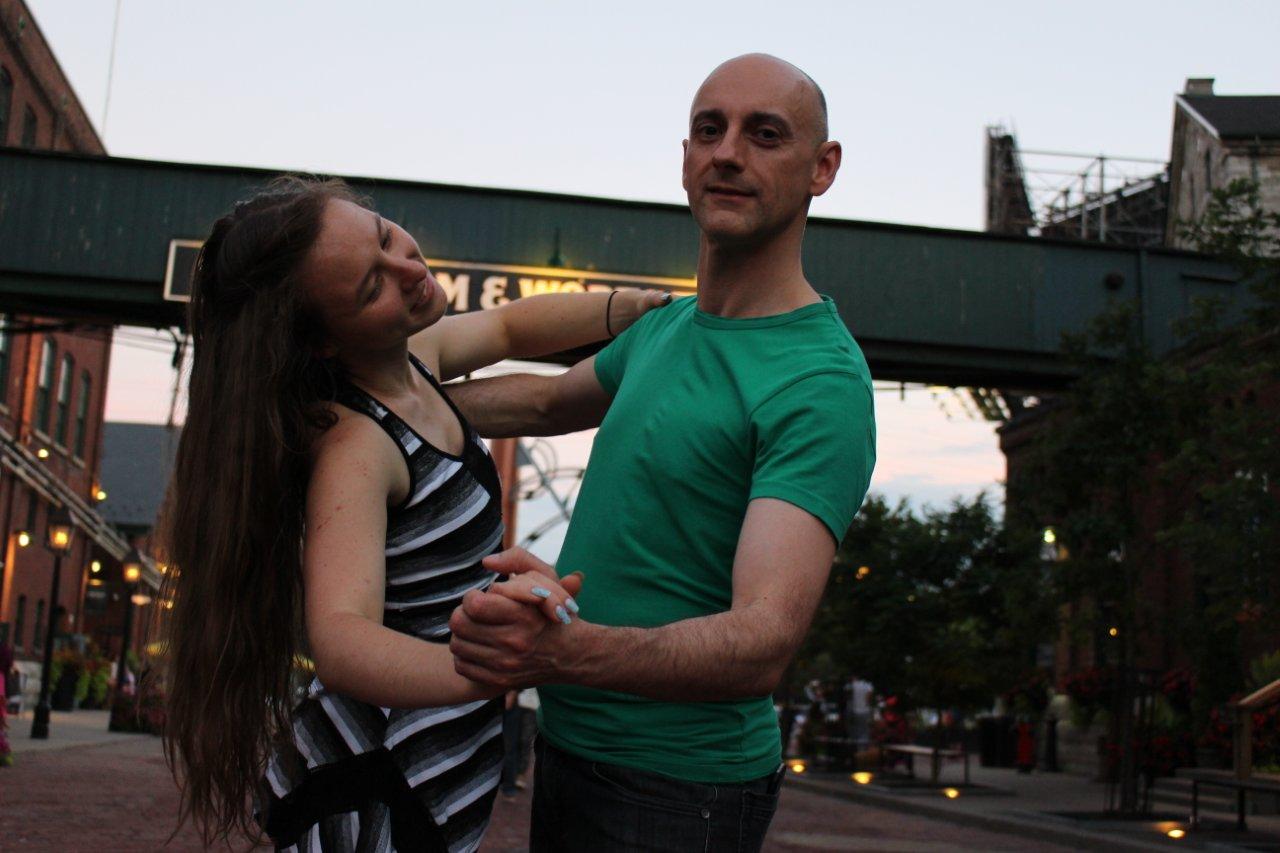You have probably heard (or said) some variation of the phrase “I love beginners! All I care about is that my partner has good, clean basics.” We think that it takes the pressure off of novice dancers who are still getting their feet, and that it discourages pattern junky or rough behaviour. But, I think we may want to reconsider this phrase. The “Clean Beginner” Myth Beginners cannot have clean basics. Some may have cleaner or stronger basics, and some may be weaker. But, they’re not going to be ‘clean.’ Why? Put simply, they haven’t developed them yet. Very few people…
-
-
Have you ever had an unpleasant dance? Maybe your partner squeezed your hand too hard. Maybe they were generally off-time and a bit rough. What did you do? Did you fix your face into an unsatisfied scowl to teach them a lesson? If you did, you have engaged in what I call passive-aggressive feedback. What is passive-aggressive feedback Passive-aggressive feedback is when a dancer uses body language (or, in extreme cases, even words) to indicate to their partner how unhappy they are with the present situation, but does not offer any constructive information as to what the issue is or…
-
Over time, dance communities are moving towards a greater focus on follower empowerment. We are becoming more aware of the value followers bring to a dance, and the need to teach to both followers and leaders. But, some people are still a little bit foggy on what follower empowerment is. What follower empowerment is not As we explore what follower empowerment is, we need to remember that it is not about making followers more important than the leader, or insinuating that leaders are the bad guys. Rather, by giving more weight to the responsibilities and importance of the follower role, it actually reduces the…
-
In group classes, it can be a struggle to find the line between providing feedback to a partner, asking for what you want, and becoming the teacher. In my opinion, feedback and asking for what you need from a partner is an integral part of learning. For example, asking a lead to do something with less force or focus on a particular element can make a follow’s learning experience far more effective. For leaders, asking a follower to wait can be helpful for understanding the actual mechanics of a movement. But, in order to give appropriate feedback, the provider needs to avoid…
-
I have always advocated strongly for dancers to speak up when something hurts, or when they’re uncomfortable. I still think it’s very important for dancers to learn how to use their voice. But, part of understanding our current social dance culture is also understanding that some people are not yet confident enough to speak up. No “Blame” (Usually) While we don’t like to think about it, sometimes we might be the person who made someone uncomfortable. There are very few (if any) people who actively want to make their partner uncomfortable. Most of us strive for the opposite. And, one of…
-
Touch is necessary for social dancing. Depending on your style of dance, it can be anything from an open handhold to full body contact. Those contact points may also change or evolve, and those connection points may ask for specific physical responses from a partner. These touches are a type of dance-touch. They’re how we communicate with each other, for the purposes of creating an interesting, fun, and safe dance. But, there’s another type: non-dance touch. Non-dance touch is any touch that you don’t feel is part of dancing. It can be sexual, or completely platonic. These are touches that don’t…
-
We are used to paying cover to go social dancing, but for many people the concept of ‘paying for dances’ is both foreign and alarming. It is usually men who are ‘paid’ as a partner, and women who are paying. And, the practice is more frequent at large events than small socials. Paying for dances comes in several forms: taxi dancers, who are paid or given complimentary entrance/discounts to an event in exchange for social dancing; fundraiser dances, where pro’s are ‘tipped’ for a minute of social dance time and profits are donated to charity; dancer ‘rentals,’ where a high-level dancer is…
-
Dear Leaders, You’ve probably heard somewhere that if there’s a mistake, it’s always your fault. I want to tell you that this isn’t true. As a lead, you are supposed to compensate for a follow who is struggling. This might mean slowing down, changing the moves you use, or being more clear on what you would like. But, the fact that you’re supposed to compensate for your partner doesn’t make you at fault for every mistake that happens. Compensation is a great thing. But, there’s only a certain amount you can compensate for. For example, you can’t magically turn a…
-
Most of us don’t do much talking while we dance. But, social dancing does require at least some verbal communication. In this list, we cover 10 things you should avoid saying to your dance partners. 1. “This is how you do ______.” Except for very limited circumstances, stopping a dance to explain a concept to your partner is inappropriate. Even if you are a teacher who knows what you’re saying is true, it’s still almost always inappropriate. Avoid floor teaching wherever possible and you’ll improve the dance experience for everyone involved!. 2. “Oh baby… you’re so sexy in my arms.”…
-
Some dance styles, like Kizomba, Brazilian Zouk, or Bachata, use a very close connection between the partners. These dances are often described as ‘sensual’ dances. For a few, they describe these dances as ‘sexual’. I understand why some people see it as sexual. Not too long ago, I was dancing with a lead who had a very intimate-feeling connection. It was intimate enough that I had to take a minute and decide whether or not he was asking for just a dance, or something more. This is after I’ve been dancing ‘sensual’ styles for over 7 years. In this situation, the…
-
Instructor Paralysis is when social dancers get so nervous about dancing with an instructor that they lose their ability to dance well. While this condition is most prolific when people dance with international instructors, it can occur with any dancer you perceive as stronger than you. It can also happen if it’s simply someone you really would like to impress. It’s similar to how awkward many of us get around a romantic crush. The big difference is that Instructor Paralysis happens with dance crushes instead. Symptoms Instructor Paralysis can manifest in different ways. Common symptoms include: Shaking or trembling Forgetting to step…
-
It’s been a while since I got a very hard, blunt ‘No’ from a dancer. This weekend, I got to re-experience one when I moved outside my normal genres. I approached a guy who was sitting next to the dance floor. I asked him to dance. He looked me dead in the eye and said “no.” Which is fine; he doesn’t owe me a dance. And, I have no reason to need an explanation for the ‘no’. But, the manner of this particular ‘no’ actually made me think it was sarcastic at first. He looked me dead in the eye with a scowl…
-
If you identify as an advanced dancer, remember that with great power comes great responsibility. (Yes, that’s incredibly corny. No, I don’t regret it.) When you become an advanced dancer, the superpower you gain is your awesome dance skills. You can use those skills to further your own pleasure and gain by holding them back from the newer dancers below you. Or, you can give those skills freely to the new dancers waiting to be inspired. “Waiting” to be inspired I say waiting to be inspired for a very specific reason: most newer dancers aren’t actually “inspired” by the dance…
-
When I was a new teacher, I had a student who began as a very ‘heavy’ follow. She used so much resistance that I would be exhausted after one dance with her. After a few months of regular practice, she became a ‘lighter’ follow. It was a beautiful connection. But, she didn’t stop there. She kept trying to connect more lightly. After all, the response to the initial ‘lightening’ was very good – so more must be better, right? The Overcorrection Conundrum This is a habit that I’ve seen quite frequently with dedicated but less-experienced partner dancers. First, they get a piece…
-
Practice partners are a frequently underused resource in dance education and practice. Some people fear that a practice partner will entrench bad habits. Others feel like they can’t ‘learn enough’ working independently without a teacher. Others just get flat-out bored. But, those who have one (or two, or three) swear by them. Are you ready for a practice partner? Most people immediately start thinking about who they would ask to be their practice partner. But, the first thing to ask is if you would make a good practice partner. Until you are ready to really commit to having a practice…
